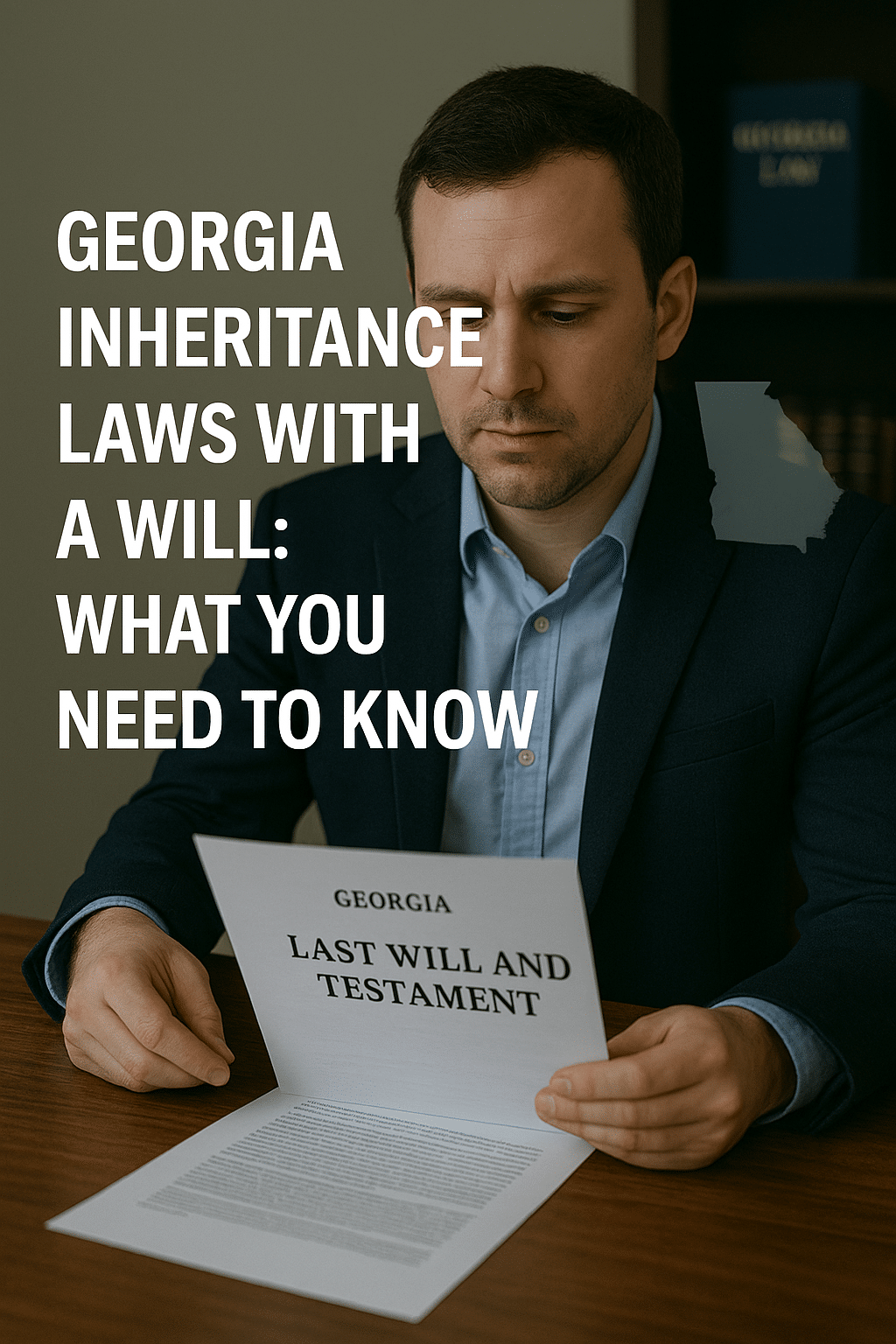Creating a will gives you control over what happens to your assets after you die—but even with a will, Georgia law sets the rules for how your estate is handled.
If you’re planning your estate—or you’re the executor or beneficiary of a will in Georgia—it’s important to understand how Georgia inheritance laws work when a valid will is in place.
Here’s what you need to know.
1. A Valid Will Overrides Georgia’s Default Inheritance Rules
When someone dies without a will, Georgia’s intestate succession laws decide who gets what. But if there’s a valid will, those default rules are overridden.
A valid will in Georgia must:
- Be in writing
- Be signed by the person making the will (the testator)
- Be witnessed by two competent individuals
If the will meets these criteria, it controls:
- Who inherits specific assets
- How much each person receives
- Who is named as executor
- Who is appointed as guardian for minor children (if applicable)
2. The Will Must Go Through Probate
Even with a will, Georgia law requires the estate to go through probate, unless all assets are held in a trust or pass outside probate (e.g., through joint ownership or beneficiary designations).
The probate process involves:
- Filing the will with the probate court in the county where the deceased lived
- Having the will “proven” as valid
- Appointing the executor (if not already qualified)
- Notifying heirs and creditors
- Paying debts and taxes
- Distributing assets to the beneficiaries
Having a will does not avoid probate, but it simplifies it—because the court has clear instructions to follow.
3. What Happens If Someone Challenges the Will
Heirs or interested parties can contest a will in Georgia based on:
- Lack of capacity
- Undue influence
- Fraud or forgery
- Improper execution
If the court finds the will invalid, it may revert to an earlier version or apply Georgia’s intestacy laws. This is why proper execution and planning matter—poorly written wills can lead to costly disputes.
4. Can a Spouse or Child Be Disinherited?
Spouse:
Georgia does not have an elective share statute, meaning a surviving spouse can be disinherited in a will. However, the surviving spouse may still claim:
- A year’s support from the estate (a protected allowance during estate administration)
Children:
Parents can disinherit a child in a will, but this must be done clearly. Simply omitting a child may not be enough—ambiguity can lead to legal challenges.
To reduce risk, your will should:
- Clearly state if a child is being disinherited
- Use specific language that shows the omission is intentional
5. Inheritance May Still Be Subject to Taxes and Debts
Even with a valid will, assets left to beneficiaries may be used to:
- Pay off the deceased’s debts
- Cover final expenses and taxes
Georgia doesn’t impose a state inheritance or estate tax, but federal estate tax may apply to large estates.
The executor must ensure debts are paid before making distributions.
6. Some Assets Pass Outside the Will
Certain types of property don’t go through the will or probate at all. These include:
- Life insurance with a named beneficiary
- Retirement accounts (IRA, 401(k)) with a beneficiary designation
- Property held in joint tenancy with right of survivorship
- Assets titled in a revocable trust
Make sure your beneficiary designations are up to date, or they could override your will—or cause unintended results.
Let Hurban Law Help You Create a Will That Works
At Hurban Law, LLC, we help Georgia residents create legally sound wills that protect their loved ones and minimize risk. Whether you need to write your first will, update an outdated one, or navigate probate, we’ll guide you every step of the way.
Contact us today to ensure your will is enforceable, effective, and tailored to Georgia law.





